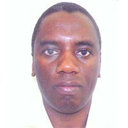Predictors of positive blood culture and deaths among neonates with suspected neonatal sepsis in a tertiary hospital, Mwanza-Tanzania.
Schlüsselwörter
Abstrakt
BACKGROUND
Neonatal sepsis is a significant cause of morbidity and mortality in neonates. Appropriate clinical diagnosis and empirical treatment in a given setting is crucial as pathogens of bacterial sepsis and antibiotic sensitivity pattern can considerably vary in different settings. This study was conducted at Bugando Medical Centre (BMC), Tanzania to determine the prevalence of neonatal sepsis, predictors of positive blood culture, deaths and antimicrobial susceptibility, thus providing essential information to formulate a policy for management of neonatal sepsis.
METHODS
This was a prospective cross sectional study involving 300 neonates admitted at BMC neonatal unit between March and November 2009. Standard data collection form was used to collect all demographic data and clinical characteristics of neonates. Blood culture was done on Brain Heart Infusion broth followed by identification of isolates using conventional methods and testing for their susceptibility to antimicrobial agents using the disc diffusion method.
RESULTS
Among 770 neonates admitted during the study period; 300 (38.9%) neonates were diagnosed to have neonatal sepsis by WHO criteria. Of 300 neonates with clinical neonatal sepsis 121(40%) and 179(60%) had early and late onset sepsis respectively. Positive blood culture was found in 57 (47.1%) and 92 (51.4%) among neonates with early and late onset neonatal sepsis respectively (p = 0.466). Predictors of positive blood culture in both early and late onset neonatal sepsis were inability to feed, lethargy, cyanosis, meconium stained liquor, premature rupture of the membrane and convulsion. About 49% of gram negatives isolates were resistant to third generation cephalosporins and 28% of Staphylococcus aureus were found to be Methicillin resistant Staphylococcus aureus (MRSA). Deaths occurred in 57 (19%) of neonates. Factors that predicted deaths were positive blood culture (p = 0.0001), gram negative sepsis (p = 0.0001) and infection with ESBL (p = 0.008) or MRSA (p = 0.008) isolates.
CONCLUSIONS
Our findings suggest that lethargy, convulsion, inability to feed, cyanosis, PROM and meconium stained liquor are significantly associated with positive blood culture in both early and late onset disease. Mortality and morbidity on neonatal sepsis is high at our setting and is significantly contributed by positive blood culture with multi-resistant gram negative bacteria.


